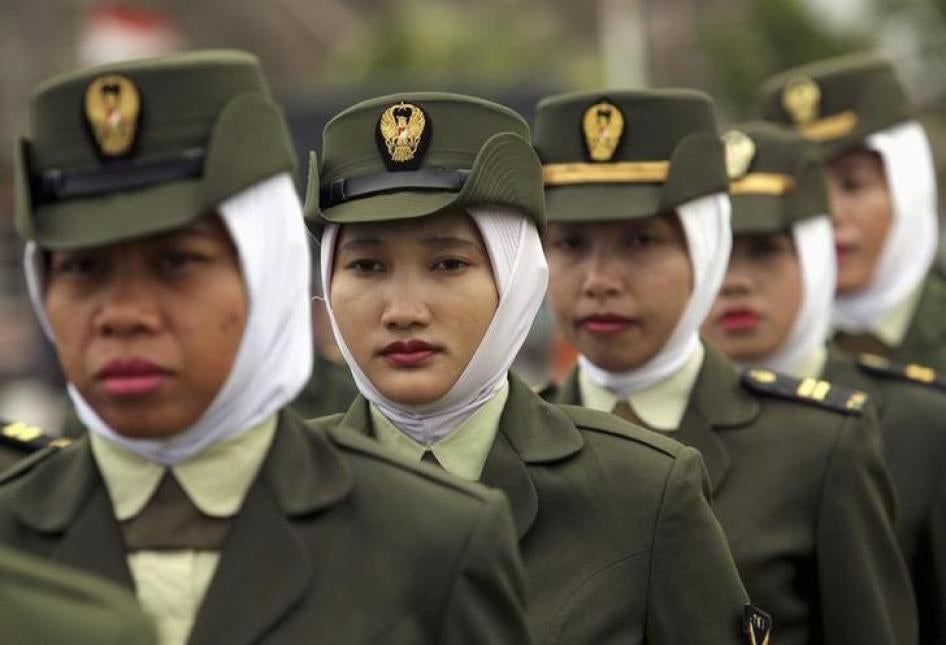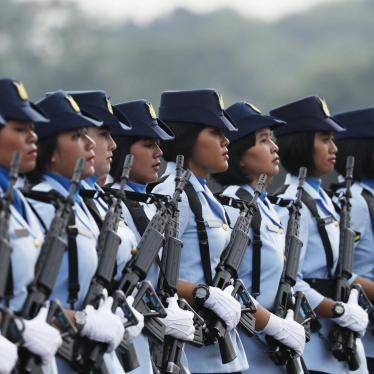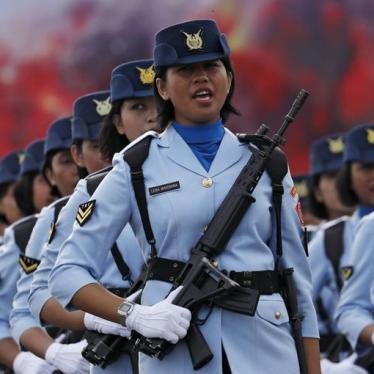But Jokowi neglected to add that his government continues to inflict a form of gender-based violence on thousands of “tough women” interested in “building Indonesia” – specifically those applying to join the Indonesian Armed Forces and the National Police. That’s because these female applicants are routinely subjected to abusive “virginity tests.”
Jokowi has consistently failed to condemn or order the abolition of these so-called tests – an invasive, discriminatory “two-finger” examination that has been widely discredited, including by the World Health Organization.
Human Rights Watch first exposed the use of “virginity tests” by Indonesian security forces in 2014, but since then the government has failed to take steps to prohibit their use. While HRW found that applicants who were deemed to have “failed” were not necessarily penalized, all of the women with whom we spoke described the test as painful, embarrassing, and traumatic.
Indonesia’s National Police have imposed these abusive and degrading tests on thousands of female applicants starting as early as 1965, despite their contravention of their own principles that recruitment must be both “non-discriminatory” and “humane.”
On November 19, 2014, Indonesia’s coordinating minister for politics, law and security, Tedjo Edhi, told reporters that such tests had long been obligatory for female military recruits as well. Major-General Fuad Basya, the armed forces spokesman, said the Indonesian military had conducted “virginity testing” on female recruits for even longer than the police, without specifying when the practice began.
Human Rights Watch research found that all branches of the Indonesian military – air force, army and navy – have used the test for decades and also extended the requirement to the fiancées of military officers.
The Indonesian government can’t feign ignorance about the abusive nature of such “tests.” They have been recognized internationally as violations of the right to non-discrimination and the prohibition against “cruel, inhuman or degrading treatment” under international human-rights treaties that Indonesia has ratified.
In November 2014, the World Health Organization stated unambiguously that “There is no place for virginity (or ‘two-finger’) testing; it has no scientific validity.”
However, senior military and police officials have ignored years of pressure by women in Indonesia to put an end to this abuse. Some male officers have openly endorsed the practice.
Police Inspector General Moechgiyarto in November 2014 confirmed the requirement and said it was a means of ensuring “high moral standards.” He suggested to the media that those failing the test were prostitutes.
In May 2015, the commander of Indonesia’s armed forces at the time, General Moeldoko, responded to criticism of “virginity tests” by saying to the media, “So what’s the problem? It’s a good thing, so why criticize it?” Those disgraceful comments have not harmed Moeldoko’s post-military career. Instead, Jokowi has since appointed him as his chief of staff.
Now Jokowi has a choice. He can mouth platitudes about his support for the rights of Indonesian women. Or he can demonstrate political will by overriding senior military and police officials – as well as his chief of staff – and ordering the security forces to immediately abolish “virginity tests.”
Until he does, far too many of the “strong women” he says are needed to “build Indonesia” will continue to pay an unacceptable price for public service.









